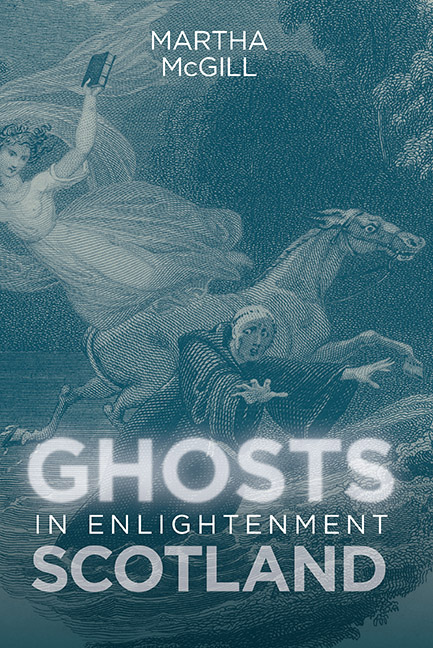Book contents
Conclusion
Published online by Cambridge University Press: 12 October 2019
Summary
The lingering dead are a timeless concept. There is a history to be written that traces ghostly manifestations across different cultures and periods, exploring the strands of continuity, and reflecting on what it means to be mortal. But ghosts also came in a wide variety of forms, and their evolutions tell a story as well. In the long eighteenth century, Scottish ghosts passed through several stages of development, and came to reflect on an increasingly wide range of contemporary concerns. By the end of the period, Scotland was marketed as a haunted nation. There is an irony in this, given that the Enlightenment is persistently associated with the rationalisation of Western culture. It is true that ghosts (and other supernatural beings) were reevaluated in the light of the medical and philosophical developments of the period, but naturalised visions of ghosts constituted only one of multiple possible explanatory frameworks. Varied ways of thinking about ghosts reflect a range of complementary and competing cultural forces, and challenge overly simplistic models of social change.
Ghosts had an ambiguous place in medieval culture: they were sometimes interpreted as the returning dead, and sometimes as diabolic forces. After the Reformation and the demonological writing of James VI, the orthodox position became clearer. Apparitions were deceptions, whether conceived by drunkenness, melancholy or the wiles of the Devil. Some ghost stories remained in circulation, and the witch trials reinforced popular notions of the powerful dead. Nevertheless, this was a period when ghosts were sidelined; respectable ministers and theologians had little interest in discussing them. It is only with the work of George Sinclair and Robert Wodrow in the late seventeenth and early eighteenth centuries that we see a serious attempt to reinstate ghosts into the Protestant worldview. The approach never became mainstream, but it established a new template for ghosts. There were continued attempts to employ them as religious propagandists throughout the eighteenth century, whether in support of basic Christian tenets, or specific theological arguments.
Relatively few ghost stories emerged from about the 1730s to the 1760s. However, the late eighteenth and early nineteenth centuries were witness to a rapid expansion of printed ghost stories and discussion on ghosts.
- Type
- Chapter
- Information
- Ghosts in Enlightenment Scotland , pp. 197 - 208Publisher: Boydell & BrewerPrint publication year: 2018

